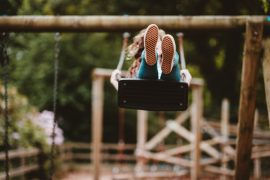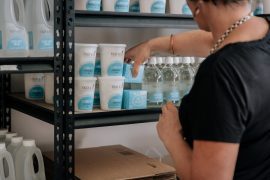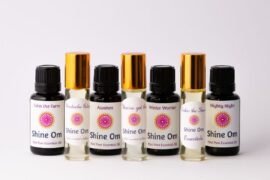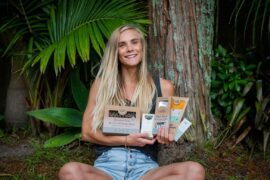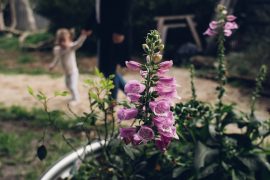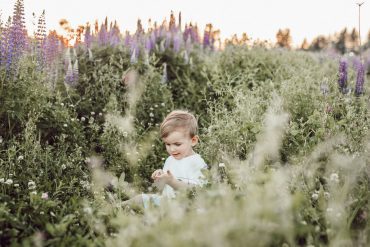By Shay Lawrence
Parenting our newborns uses a lot of stuff! In those first few months, you find your feet, buy different products, and learn what works best for you. Let’s look at two of the most commonly used disposables, wet wipes and disposable nappies, and talk through reusable alternatives that are easy and work.
Wet Wipes
These are necessary for any household with a little one. However, some options are better than others for you, your baby, and the environment. Disposable wet wipes are traditionally made of a plastic mesh that takes dozens of years to break down and ingredients that aren’t so flash for your baby’s skin. More often than not, people also flush these disposable wipes. These accumulate in underground pipes, causing blockages (endearingly known as ‘fatbergs’) that are costly to fix and disrupt the sewage systems. Over 50% of sewer blocks can be attributed to people flushing wipes, mistakenly believing they will break down like toilet paper … they don’t!
Disposable wet wipes are traditionally made of a plastic mesh that takes dozens of years to break down and ingredients that aren’t so flash for your baby’s skin.
An easy alternative is a Reusable Wet Wipe. They are free of plastics, don’t contain any chemicals, and can be washed and reused thousands of times – they’re even home-compostable at the end of their life cycle. You can DIY these by cutting up a towel at home or buying a ready-made pack. Making your own wipes at home can clear out any old towels or flannel sheets you aren’t using anymore. Be sure to wash these on a hot wash to kill bacteria, like cleaning a reusable nappy.
Your Nappy & Toileting Routine
Did you know around twenty billion disposable nappies are added to landfills annually, creating several million tons of waste? This introduces pathogens into the environment, and the nappies take over 500 years to decompose. Microplastics from the decomposition process then remain in the environment forever (literally!).
Newborns poop a lot! You will use an average of 8-12 nappies per day for the first few months, which adds up to thousands of nappies per baby in a pretty short timeframe. The switch to a reusable option saves a lot of landfill waste, even if it’s just part-time. Reusables at home and disposables when you are out and about seems to work for families that don’t want to go all in!
You will use an average of 8-12 nappies per day for the first few months, which adds up to thousands of nappies per baby in a pretty short timeframe.
It’s also important to consider that most disposables are made from plastic with a bunch of absorbing chemicals that go right next to your baby’s sensitive areas, more or less 24/7! Compared to low-tox reusable cotton options, this is essential to ponder when it comes to your nappy game plan. I know that reusables are an upfront investment but keep in mind that they can be resold, passed on and used for multiple babies. The new designs break through all the preconceived notions that traditionally reusables are hard to deal with, confusing, and leak a lot. Adding to this, disposables end up being quite the weekly expense!
If you are keen to try, a combination of Elimination Communication (EC) and reusable nappies will help lighten the laundry load. EC is when you help your baby ‘go’ in a potty (or another receptacle) if your baby is 0 to 18 months old. Using this method, most poops are ‘caught’ in the potty or toilet, and the washing becomes a non-event. We’ve been practicing EC since our baby was born, and it saved us time, money, and energy spent wiping up messes. Have a read of a previous Natural Parenting Magazine blog we wrote on EC as an option for you to explore here.
Which baby items cause the most waste in your house, and could you switch these out for a reusable alternative?
Shay Lawrence is the founder of bCorp certified social enterprise, CaliWoods. Inspired by her journey with her little boy, CaliBaby now provides low-tox, reusable essentials to help kiwi families live with less waste.


